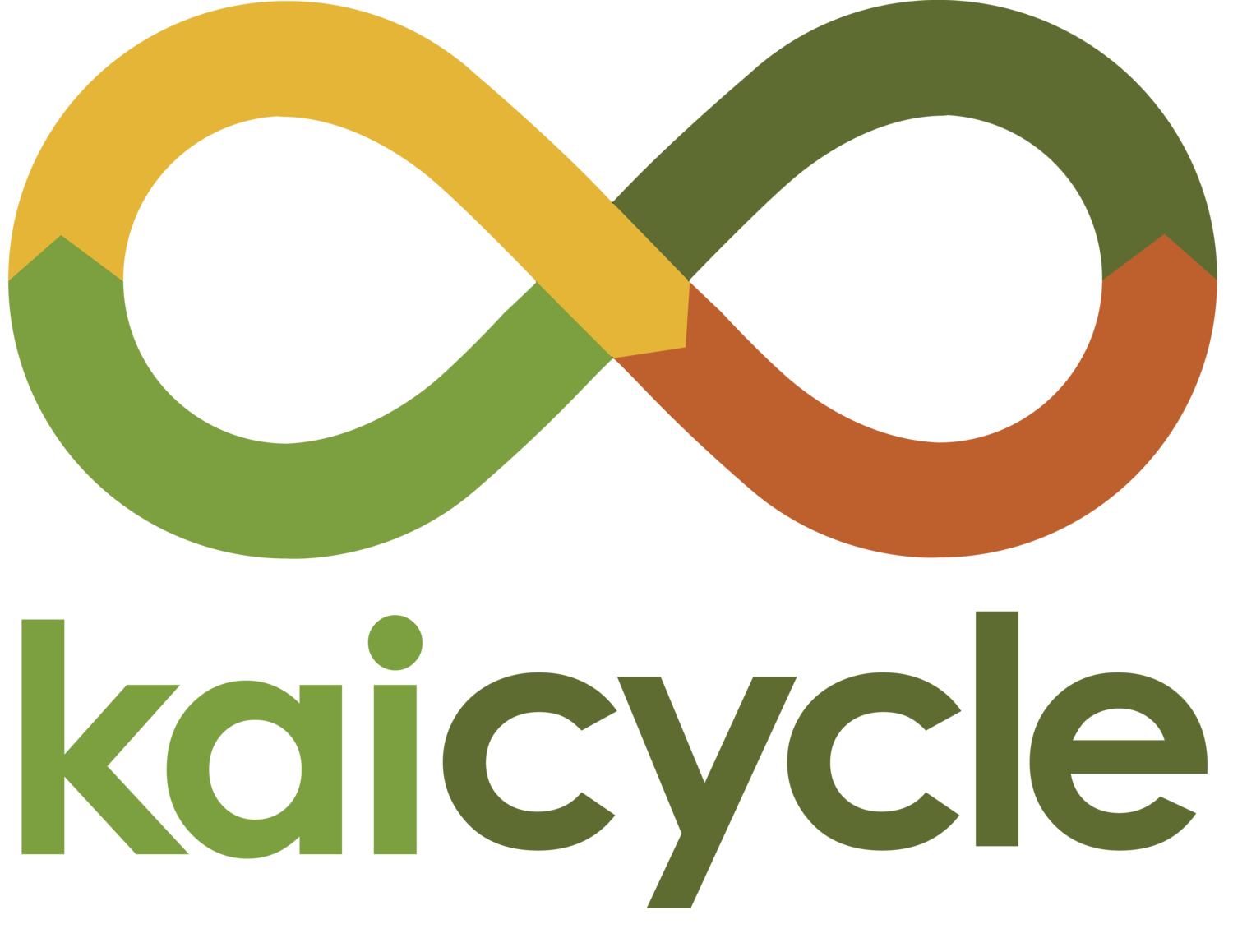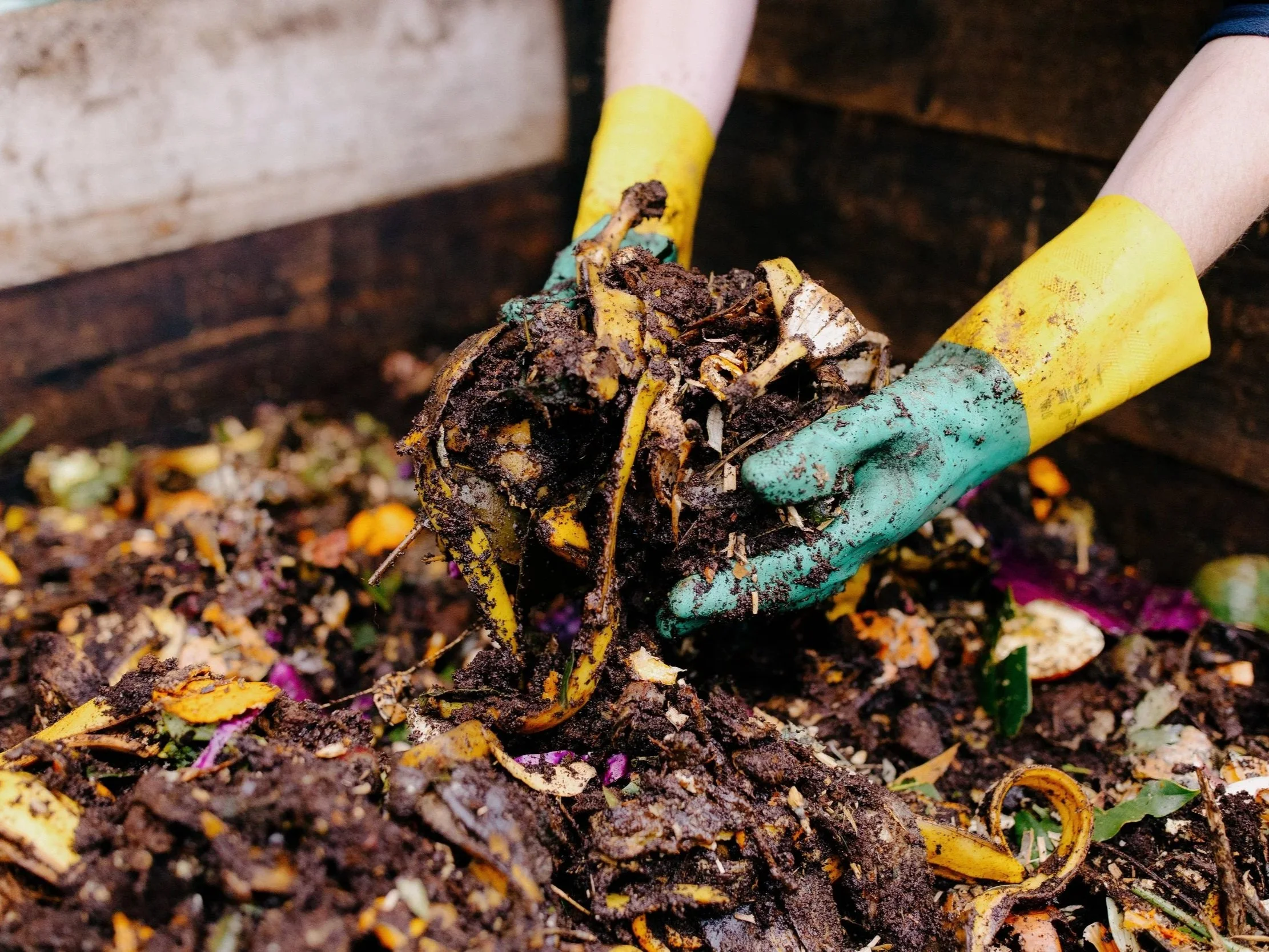Open to residents in Newtown, Te Aro and Berhampore
Our drop-off hubs remain open over summer
🌞
Our drop-off hubs remain open over summer 🌞
Please expect longer response times than usual during Kohitātea / January due to reduced staff capacity.Don’t waste it!
For $22.50/month, you can drop off your households’ food scraps at one of our three compost hubs around Pōneke - and we’ll turn it into beautiful biodiverse compost that is full of microbes and mauri!
Newtown - lots of space available
Berhampore - limited space available
Te Aro - full
“It’s great to have an option to contribute to composting and reducing landfill waste when it hasn’t been possible to do it at home, and while the local council does not provide this service. Thanks to the Kaicycle team for doing the hard mahi, we always enjoy coming down to the māra and seeing what’s sprouting. ”
How it works
Use a sealed container of your choice to collect your households’ food scraps during the week
Take it to your local compost hub at least once a week to keep things fresh (open 24/7)
Unlock the wheelie bin (using the code you’ll receive at sign-up)
Drop your scraps in and add a scoop of the provided coffee chaff to absorb excess moisture
Wash your container at home or on site (running water available at the Newtown & Berhampore hubs)
Note: if washing your own container is not an option for you (e.g. due to disability or access needs), let us know so we can make other arrangements. For those using the Te Aro hub, we offer a bucket swap system since there is no access to running water. Thank you for helping us be plastic free by avoiding single use plastic liners.
What we accept
Click here to see what we do and don’t accept. We work hard to prevent plastics, chemicals and other nasties from entering our soils and ecosystems. Please help us create high quality compost by following the guidelines and get in touch if you’re unsure.
How to sign up
Click the button below or email us at compost@kaicycle.org.nz with your full name, address, phone number and start date.
If your local hub is already full, or if there isn’t a hub in your area, you can join our waitlist here. We’re planning on expanding our drop-off network in the future - get in touch if you would like to see a hub in your neighbourhood.
Why pay to compost food scraps?
We operate a professional composting service at Kaicycle, which means we don’t operate quite like other community gardens that are powered by volunteers. We pay the Living Wage to our cyclists and composters for their mahi. So your subscription fee goes towards:
Collecting your food scraps weekly by e-bike & trailer - transporting them from the hub to our urban farm
Cleaning out the buckets, tubs and wheelie bins, and resetting them so they’re fresh each week
Processing the food scraps by hand - removing fruit stickers and non-compostable items, and preparing the compost piles
Monitoring our 30 compost piles over 4-6 months - turning them and ensuring ideal conditions for microbial activity (e.g. temperature, moisture, air flow)
Maturing the compost for another 2 months - increasing activity from worms, invertebrates and fungi
Donating our matured & living compost to marae, community gardens and schools, or using it on our own farm to grow organic kai
Hosting events, workshops and volunteer sessions to share our composting and farming knowledge
Improving our infrastructure and processes so that we can keep producing premium living compost that regenerates soils, grows healthy kai and nourishes our communities.
As a subscriber, you also get a 20% discount when buying our compost - find out more here.
Please let us know if price is a barrier for you, as we offer a discount for Community Service Card holders.
If you’re not in a position to pay at the moment but still want to put your scraps to good use - there are other community gardens that welcome food scrap donations for free - like Innermost Gardens, Miramar Prison Gardens, and Hataitai Men’s Shed - as well as private residents contactable via Peels.
Composting helps protect Te Taiao
Did you know that the average Wellington household disposes of 3.2kg of food per week? This adds up to 30,000 tonnes of food going to landfill per year - the same weight as 62 jumbo jets!
In a landfill, food waste is buried by other rubbish and crushed, which limits its exposure to sunlight, oxygen, and microorganisms. In this environment, food rots instead of composts and as it breaks down releases methane, a powerful greenhouse gas that is 80 times more harmful than carbon dioxide.
Composting is good for the environment as it allows unavoidable food waste to break down naturally, with the help of oxygen, microorganisms, worms and fungi. The organic matter decomposes into a nutrient-rich soil-like material. This process helps to:
reduce methane gas emissions
reduce the volume of waste sent to landfill
save money on rubbish fees
return nutrients to the soil
improve soil health and microbiology
grow nutritious kai!
We help grow food—not landfills
Kaicycle has been composting food scraps for businesses and households in Pōneke since 2015.
We believe in localised food systems that regenerate our soils, grow healthy and affordable kai, and nourish our communities.



